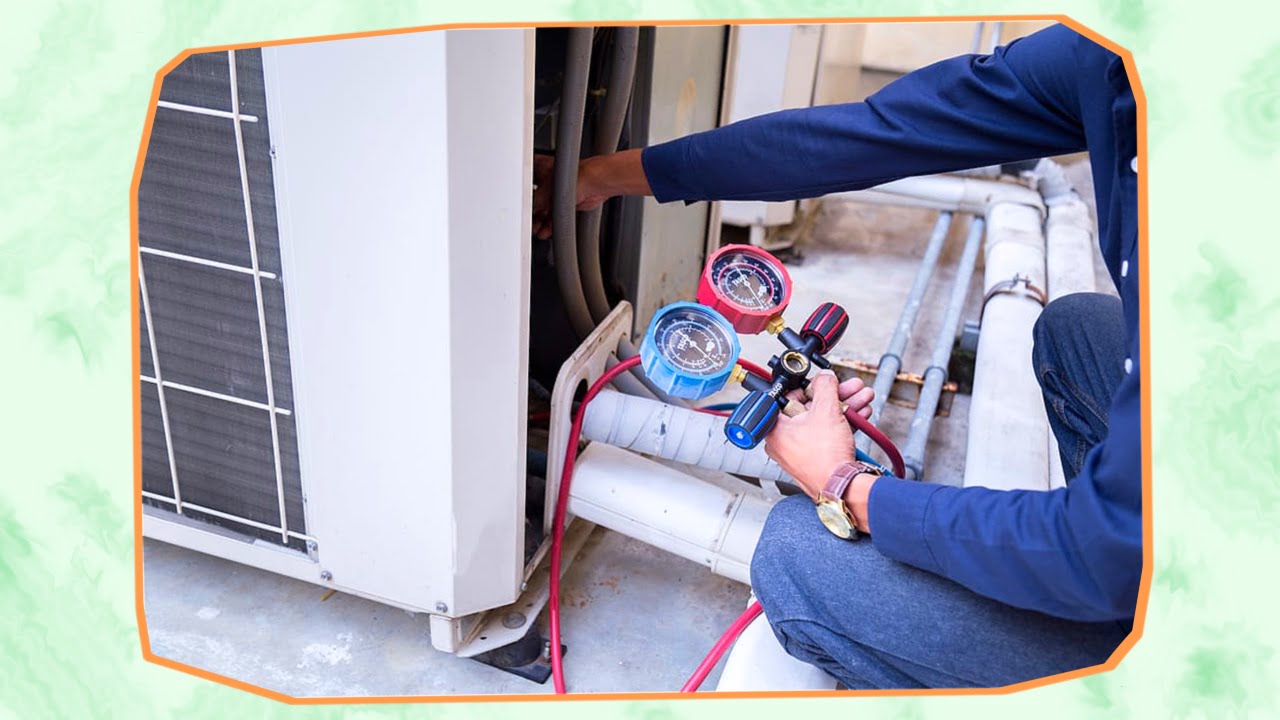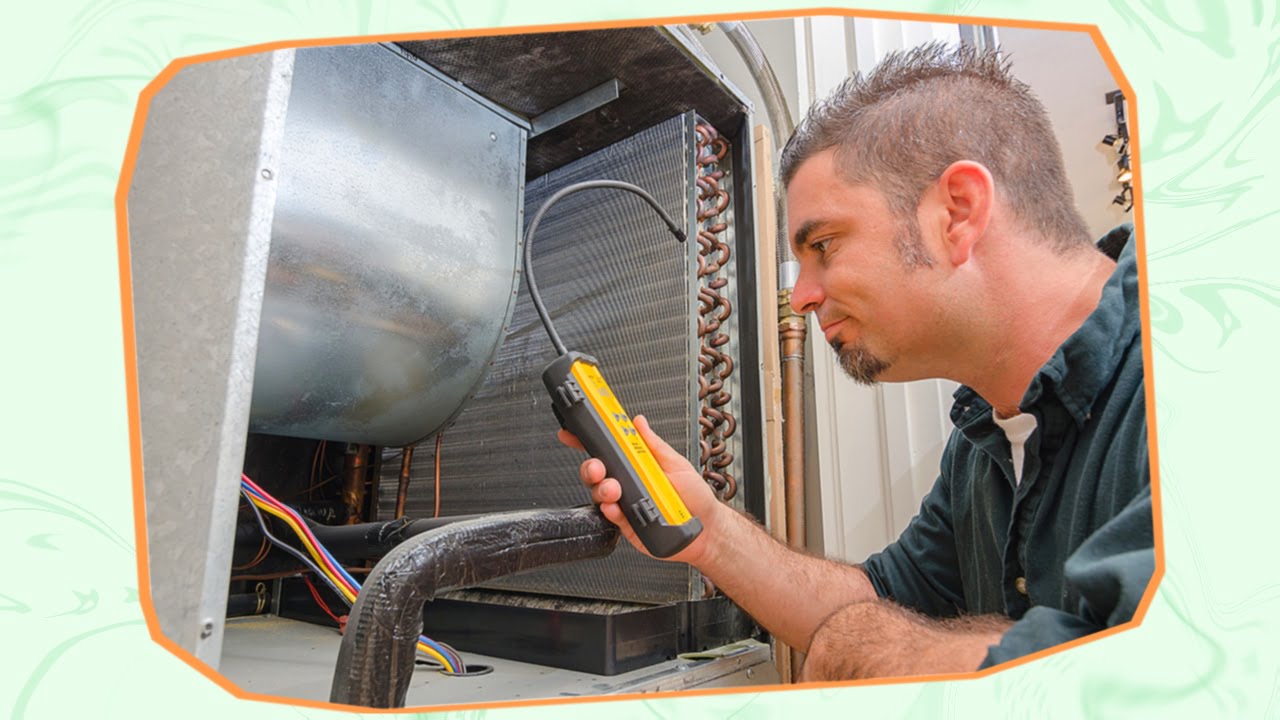Freon is a popular brand of chemical refrigerant, so both terms are often used synonymously nowadays. To determine if your AC is low on Freon, you must check the refrigerant line, the evaporator coil, supply vents, and more.

There’s nothing more annoying than an air conditioner producing warm air on a hot summer afternoon.
But things get even worse when you still end up with higher energy bills at the end of the month. Of course, no one wants to pay more for an AC that’s not working properly.
Now for most malfunctioning AC units, the culprit could be a refrigerant leak or a frozen evaporator coil. So, to help you determine the root cause of the issue, I’ve curated this informative guide explaining the signs of an AC that’s low on Freon (refrigerant).
Signs Of Low Refrigerant In An Air Conditioner

1. Supply Vents Blowing Warm Air
The job of the refrigerant is to eliminate heat from the surroundings and transfer it outside. If the AC unit is low on refrigerant/Freon, it will obviously not absorb as much heat, thereby producing warm air from the vents.
Tip
Keep in mind that low refrigerant may not be the only cause of the lack of cool air in your air conditioning unit. So, before hiring a professional, I recommend checking your AC filter. If the air filter is clogged, it may not absorb the heat effectively.
But if you have already replaced the filter and are still experiencing issues with the air temperature, it’s best to contact a professional to check for low refrigerant levels.
2. Hissing Or Bubbling Noise
Air conditioners emitting any type of hissing or bubbling sound may indicate refrigerant leaks. Basically, the hissing sound is produced by the refrigerant (Freon) leaks escaping as gas, while the bubbling sound occurs if it leaks in liquid form.
Unlike the previous point, an AC does not produce odd sounds often. So, if you hear something out of the ordinary, it most likely means that your air conditioner needs more Freon refrigerant.
3. Ice Or Frost On Your AC
In the case of low refrigerant levels, you may spot ice or frost in and around the AC system. This is because when the AC does not have enough refrigerant levels, it can cause the temperature of the entire unit to go below normal levels. As a result, you will notice ice building up on the evaporator coil and refrigerant lines.
However, you must watch out for other issues that may lead to similar ice buildup. For instance, if the AC unit has a clogged air filter or closed vents, it will obviously experience low airflow. Consequently, the evaporator coil of the air conditioner may freeze.
Hence, I suggest checking your air filter and ensuring none of the vents are closed before calling in a professional to check the air conditioner.
4. High Electric Bills
Ever noticed your electricity bills increasing despite making no temperature change to your central air cooling system? Again, it could be caused by a refrigerant leak. To help you understand this, I’ll explain the role of the refrigerant in simple terms.
So, think of it as the “blood” of your air conditioner. The AC system sends warm air blowing over the evaporator coil containing chemical refrigerant, which absorbs heat from the surrounding air and dumps it outside. If the AC is low on Freon (refrigerant), then it obviously has to work harder to get rid of the heat and cool your home. And in the end, you will end up paying a higher monthly electric bill.
But of course, like most points discussed above, high energy bills can be caused by the following as well…
1. If The AC System Is Too Big Or Small For Your Home
If you’ve installed a new air conditioner and suddenly get a higher electricity bill, it could be that your AC is too big or small for your home. If the AC unit is too big, it may shut off repeatedly throughout the day, and if it's too small, it will have to work harder to cool the area. In both cases, the appliance is bound to use more energy, resulting in higher bills.
2. If The AC Unit Is Too Old
If your AC is always giving up on you, especially during extremely hot weather, it may be because it’s too old. For reference, a decade-old AC is more likely to become less efficient and use more energy.
3. If The Air Conditioner Has A Dirty Air Filter
As I already mentioned before, an AC system that is not working optimally and showcasing the signs discussed above could have a dirty filter. This results in restricted airflow, making your AC work harder and longer.
But if none of these factors are true and your AC fails to cool your home, contact a professional to check the refrigerant line immediately.
Freon and other CFC and HFC refrigerants have been found to contribute to the depletion of the ozone layer and to global warming. As a result, many countries have agreed to phase out the use of refrigerants and replace them with more environmentally friendly alternatives. Yes, you can continue to use your air conditioning unit if it uses Freon. But you may need to have it serviced and recharged with a substitute refrigerant if it develops a leak or needs to be recharged. It is not recommended for non-professionals to attempt to replace the Freon in the air conditioning unit with a substitute refrigerant themselves. Refrigerant handling requires specialized training and equipment, and incorrect handling can be dangerous and lead to equipment damage. So, it is best to hire a licensed HVAC technician to perform this task.Use Of Freon In AC FAQs

Final Words
That said, refrigerant leaks can occur due to a variety of reasons, and unfortunately, most of them are out of your control. For instance, insects like ants and bees can enter the AC system and produce formaldehyde that turns into formic acid. This naturally occurring acid is corrosive and can damage copper tubing, causing Freon leaks.
Additionally, the rubber seals of the valve and assembly joints can wear out over time. So, clearly, there is no way to “stop” a refrigerant leak, and one can only prevent it with regular maintenance.
Hence, I always recommend that homeowners invest in timely repairs and maintenance of their heating, ventilation, and air conditioning systems. Because let’s be real - even the best air conditioners won’t last you a lifetime. So, prevention is always better than cure.
If you liked this informative guide, I recommend checking my latest one on “How Much Does It Cost To Clean Air Ducts?”
Related Articles
How To Hide Your [AC] Air Conditioner Unit?
Best Portable Air Conditioner and Heater Combos
10 Best Dual Hose Portable Air Conditioners
9 Best Ventless Portable Air Conditioner
